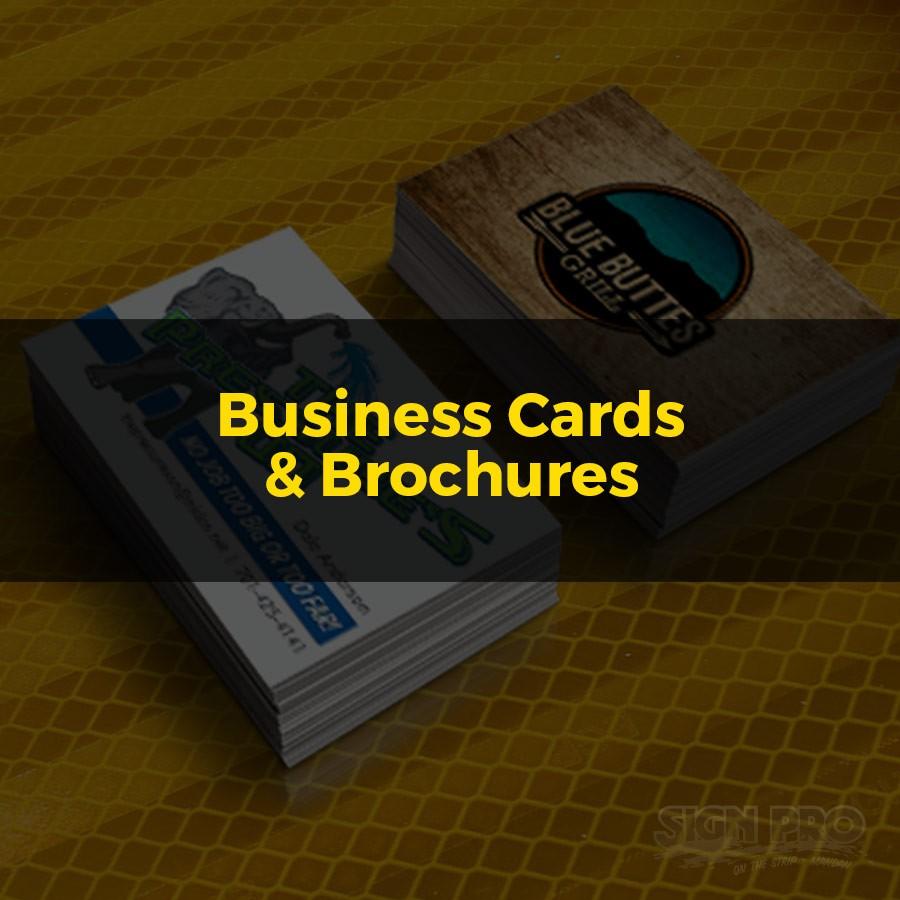Notifications

8 minutes, 22 seconds
-23 Views 0 Comments 0 Likes 0 Reviews

In today’s digital-first world, it might seem like traditional marketing tools such as business cards and brochures are becoming obsolete. However, these classic print materials still play a crucial role in creating meaningful, lasting impressions—especially during face-to-face interactions.

Whether you're at a networking event, trade show, or meeting a potential client for the first time, handing out a well-designed business card or brochure can convey professionalism, credibility, and brand consistency in ways that a digital message sometimes can't.
This blog explores why business cards and brochures remain essential marketing tools and how to use them effectively in today’s business environment.
Business cards are compact, professional, and tangible reminders of who you are and what you do. Despite the rise of email, LinkedIn, and QR codes, business cards offer several unmatched advantages:
A business card is often the first tangible representation of your brand that someone receives. A well-designed card reflects attention to detail and professionalism, helping you stand out from the crowd.
No one wants to fumble with phones at a busy networking event. Handing over a card is quick, efficient, and avoids awkward digital delays.
From your logo and font to your color scheme and tagline, every element of your business card reinforces your brand identity in a simple yet effective format.
A physical card is more likely to be kept, pinned to a corkboard, or stored in a wallet—offering more long-term visibility than a fleeting email or text.
Brochures provide space to tell your story. Unlike business cards, which deliver bite-sized information, brochures offer a more in-depth look into your products, services, and brand philosophy.
With multiple panels or pages, brochures let you include more information—such as product descriptions, pricing, testimonials, and contact info—without overwhelming the reader.
Brochures are a canvas for creativity. With strong visuals, infographics, and compelling copy, you can capture attention and guide your audience through a curated experience.
Perfect for trade shows, mail campaigns, waiting rooms, and in-store displays, brochures help businesses deliver focused information to a specific audience in the right context.
A professionally printed brochure demonstrates that your business has invested in its brand and values. It enhances perceived trustworthiness and encourages potential customers to take you seriously.
A great business card is simple, readable, and aligned with your brand. Here are some quick tips:
Include only essential information—your name, title, company name, logo, contact details, and website. Avoid cluttering with too much text.
A thick, high-quality card stock feels more professional. Consider finishes like matte, glossy, or soft-touch, and don’t shy away from embossing or foil accents for added impact.
Ensure consistency with your logo, fonts, and brand colors. This reinforces your brand identity across all touchpoints.
To bridge offline and online, add a QR code that links to your digital portfolio, LinkedIn profile, or website.
Brochures allow more room for content, but that doesn’t mean you should overload them. Smart design is key to engaging readers.
What do you want your brochure to accomplish? Whether it’s promoting a product, explaining services, or driving traffic to your website, your content should support that goal.
Break up content with clear headings, bullet points, and visuals. Make it skimmable for readers who want quick insights.
Tri-fold, bi-fold, gate fold, or booklet—each format suits different types of content. Match the layout to your message and how it will be distributed.
Don’t leave your audience hanging. Tell them what to do next—visit a website, call for a consultation, or redeem a special offer.
Integrating print materials into your marketing strategy depends on your goals and audience. Here are some ideal situations for using both:
Networking events and conferences
Sales meetings and client visits
Inside product packaging
Coffee shops and coworking spaces (leave behind)
Trade shows and exhibitions
Office waiting areas
Direct mail campaigns
Hotel lobbies and tourist centers
Included with proposals or presentation folders
Both tools shine when combined—for example, inserting your business card into a brochure gives prospects both quick contact details and detailed information in one neat package.
In the digital age, combining online and offline touchpoints amplifies your brand presence.
QR Codes: Drive traffic to your website, landing pages, or video content.
NFC Business Cards: Tap to share contact info instantly.
Trackable Links: Use shortened, trackable URLs to measure how your brochure performs in digital conversions.
If your brand emphasizes sustainability, choose eco-friendly printing options:
Recycled paper stocks
Vegetable-based or soy inks
Minimal packaging
Local printing to reduce shipping emissions
Print doesn't have to be wasteful—responsible sourcing and conscious design go a long way in aligning with environmentally aware consumers.
In a digital world, business cards and brochures are tactile, personal, and impactful. They bring authenticity to your brand and help create connections that last beyond a single interaction.
By combining smart design, clear messaging, and thoughtful distribution, you can ensure these traditional tools remain a powerful part of your marketing strategy.
Whether you're a small business owner, startup founder, or marketing professional, don’t underestimate the power of well-crafted print materials. Sometimes, the most effective way to stand out is to hand someone something they can hold.
Business Cards and Brochures professional print service professional brochure printing

